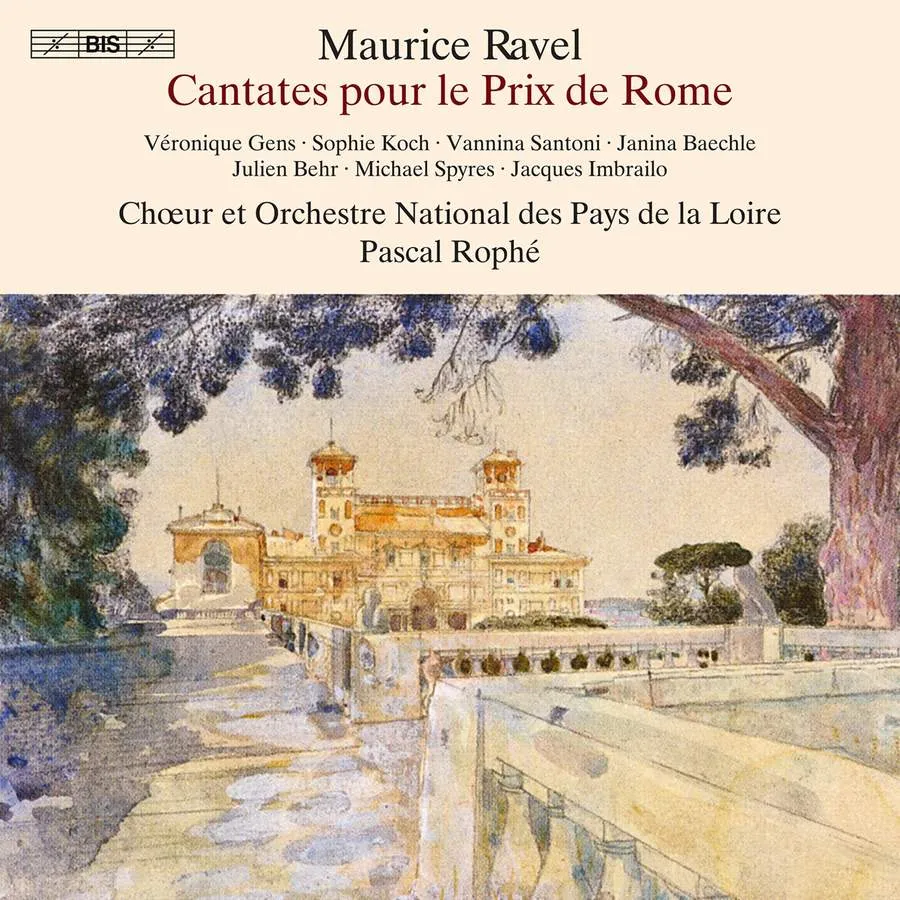
Ravel Cantates pour le Prix de Rome Véronique Gens, Vannina Santoni (soprano), Sophie Koch, Janina Baechle (mezzo-soprano), Julien Behr, Michael Spyres (tenor), Jacques Imbrailo (baritone); Chœur et Orchestre National des Pays de la Loire/Pascal Rophé BIS BIS-2582 (CD/SACD) 102:11 mins (2 discs)
Despite Bartók’s quip that ‘competitions are for horses, not for artists,’ budding French composers could not resist entering the Prix de Rome. This annual contest, requiring the submission of a fugue and chorus for the preliminary round, and a cantata for solo voices and orchestra on a prescribed text for the finalists, guaranteed considerable prestige to the winners. It’s hardly surprising that composers of the stature of Berlioz and Debussy made several attempts to secure the all-important first prize, whereas others, notably Saint-Saëns, Dukas and Messiaen, fared less well and were unable to pass all the necessary hurdles. Most scandalous of all was the treatment of Ravel, who won second prize with his cantata Myrrha in 1901, but failed to garner an award in the following years with Alcyone in 1902 and Alyssa in 1903; two years later he was even eliminated in the preliminary round.
That this official snub took place during the period when Ravel was establishing a formidable presence in the concert hall with Jeux d’eau, Shéhérazade and the String Quartet, might seem extraordinary. On the other hand, despite momentary sparks of genius in the chorus L’Aurore and in the vivid orchestral depiction of a storm in Alcyone, the works he composed for the competition owe far too much to the musical styles of Massenet, Borodin, Rimsky-Korsakov and even Gounod to justify serious comparison with these early masterpieces. Nonetheless, there is much to enjoy in this fascinating set which offers sensitive and refined orchestral playing, as well as especially outstanding vocal contributions from Véronique Gens and Michael Spyres.
Erik Levi
More reviews
Prokofiev violin works from Rosanne Philippens
Exotic arias & songs by French composers
Tunisian oudist Anouar Brahem joins a trio of jazz greats
A bold new reading of Mozart’s Requiem
Alamire’s tribute to Thomas Tallis with words by Katherine Parr
